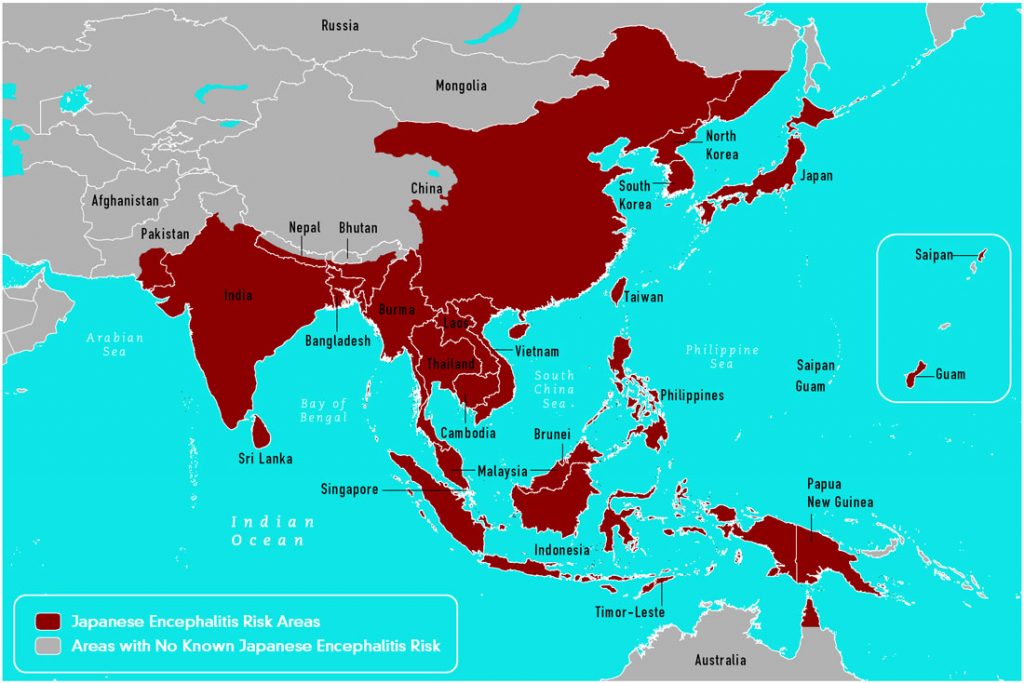The Hong Kong Centre for Health Protection (CHP) of the Department of Health announced they are investigating a local case of Japanese encephalitis (JE) and again urged the public to avoid going to rural areas from dusk till dawn when the vector which breeds in large water bodies such as rice paddies is most active.

The male patient, aged 38 with good past health, has developed fever and headache since June 18 and was admitted to Tuen Mun Hospital for management on June 28. The clinical diagnosis was encephalitis and he has been in stable condition.
His cerebrospinal fluid and blood samples tested positive for immunoglobulin M (IgM) antibodies against JE upon laboratory testing.
13 Diseases You Can Get From Mosquitoes
Initial inquiries revealed that the patient had no travel history in the incubation period. He lives in Tin Shui (I) Estate, Tin Shui Wai. His home contacts have remained asymptomatic and been put under medical surveillance.
“We are working closely with the Food and Environmental Hygiene Department (FEHD) to assess and prevent any possible spread of infection. The FEHD and the Agriculture, Fisheries and Conservation Department have been informed for vector investigations, surveillance and control. Epidemiological investigations are ongoing,” a spokesman for the CHP said.
Officers of the CHP will conduct site visit and field investigations by questionnaire surveys at the patient’s residence for active case finding and arranging blood tests. A health talk was held tonight jointly with the FEHD to deliver health advice to residents and the public.
This is the second JE case recorded in 2017 and the first case reported on June 9 has been classified as a locally-acquired infection. Two (imported) and two (one local, one unclassified) cases were recorded in 2016 and 2015 respectively.
JE is a mosquito-borne disease and JE virus is transmitted by the bite of infected mosquitoes. The principal vector is called Culex tritaeniorhynchus. JE mainly occurs in rural and agricultural areas of Asia and the Western Pacific. The infected mosquito transmits JE virus to humans and animals during biting. The mosquitoes breed where there is abundant water such as rice paddies and become infected by feeding on pigs and wild birds infected with JE virus. Symptoms usually start at around four to 14 days after being infected.
Related:
- The Northern Mariana Islands battle with hepatitis B in children successful
- Pakistan: Second Naegleria fowleri death reported in Sindh
- New Haven, Connecticut Cilantro’s linked to salmonella outbreak
- Antibiotics: Skin infections and the FDA approval of Baxdela
- France reports nearly 800 hepatitis A cases in first five months of 2017
- Hepatitis C: California reports increase in young adults



One thought on “Hong Kong investigates local transmission of Japanese encephalitis”